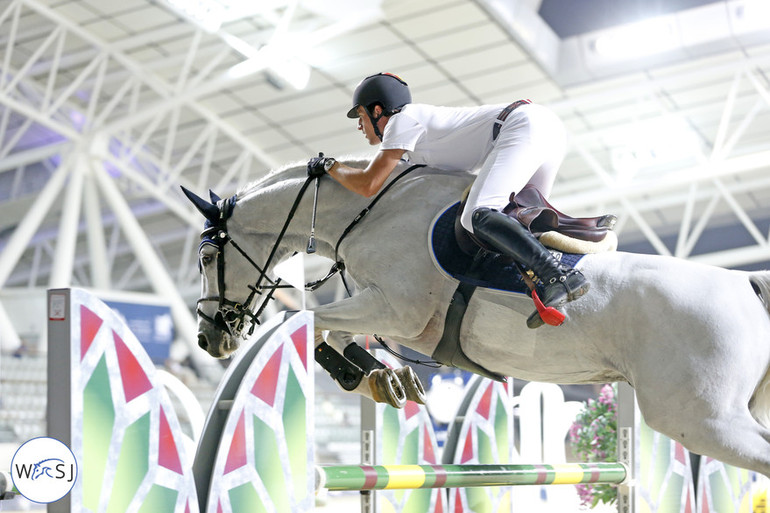Let’s talk optimal performance and increased satisfaction too. Whether your showjumping is in the earliest stages of development, you are preparing for a national competition, or perhaps excited about your first Olympic or professional appearance, there is a wealth of exciting information and inspiration available to you from the world of sport psychology. Are you keeping up-to-date and benefiting from the fascinating developments in this field? If not, you’re depriving yourself of key tools that would raise your expertise and enjoyment to the next level.
That is where I come in. I am here to both inform and inspire, or at least that’s my goal in writing this column. As a sports and clinical psychologist in Palm Beach, Florida who has noticed a fairly steady flow of showjumping clients in my 17 years in private practice both by phone and in the office, it occurred to me that it would be fascinating to share some of the fun in a column. I believe I’ve found the definitive mecca for this sport online so I’m naturally thrilled to share.
Sports psychology has been defined as “the science of psychology applied to sport.” Sports psychologists provide two major types of services: (1) performance enhancement strategies, and (2) counseling for a variety of issues affecting the athlete. Although not all equestrians have access to a qualified sport psychologist, much can be learned from the available research.
Psychology as a scientific discipline began in 1879, making it one of the youngest of all sciences. Sport psychology is younger still, with only 50 years of extensive research. In fact, it wasn’t until 1985 that the Division of Exercise and Sport Psychology was recognized as a subspecialty of the American Psychological Association. Although still in its early years of development as a profession, this field already has a ton to offer. Many research findings have still not been communicated to equestrians in an easily available format.
There is still a long way to go before most showjumpers use sports psychologists on a regular basis, but that does not mean the mental needs are not always present. This is especially true in a sport where the horse also has enormous impact on the total performance in the ring. The knowledge gap needs to be corrected and is just waiting to be tapped! It is my opinion that the complete showjumper and coach of the future will require all the benefits sport psychology has to offer to stay on top. This is true for other sports too.
In this introductory article, I have briefly outlined several areas involved and services provided by the sport psychologist. Look for future articles in this column to explore specific techniques, attitudes, and strategies to optimize your performance in the show ring and in practice.
Let’s look at a few domains where sport psychology plays a role in this sport and will likely play an even greater role in the future:
(1) Professional jumping and training
(2) National and Olympic team training
(3) College and university team training
(4) Youth development in educational facilities such as riding schools, etc.
(5) Families of equestrians
(6) Jumpers coping with injuries
(7) Recreational programs
Here are some typical services provided by the sport psychologist:
(1) Imagery training
(2) Arousal management/attentional focus
(3) Substance abuse management
(4) Eating disorders/weight management
(5) Relaxation training
(6) Motivational strategies
(7) Competitive pressure management
(8) Programs to cope with retirement from sport
In addition to these specific areas, and I have only listed a few above, people are unique and present with their own unique needs. The experienced sports psychologist, in my view, also needs to an experienced generalist able to handle difficult issues or rare conditions that might go far beyond performance. For example, depressed or anxious people who ride or jump need to have their condition treated if they want to feel better and perform well too. While most athletes who seek sports psychology services are healthy and just seeking to be super healthy and more successful, it helps to be able to wear both hats and provide more serious clinical services when needed.
In closing, sport psychology has much to offer showjumpers, and everyone involved in this great sport at all levels. If you are looking for a competitive edge, or trying to help your jumpers achieve at their maximum level, turn to the science of sport psychology!
Until next month … when we explore another topic in sports psychology.
Dr. John F. Murray, a licensed clinical psychologist and sport psychologist in Palm Beach, Florida for the past 17 years, was recently called “best in the business” by Psychology Today, USA Today and Metro New York. He is a well-known author and leader in his field with a Ph.D. in Clinical Psychology and Masters degrees both in Clinical Psychology and Sports Psychology/Exercise & Sport Sciences from the University of Florida. He maintains a web site at http://www.johnfmurray.com and provides phone or skype evaluations and mental coaching to athletes worldwide, including show jumpers. He may be reached for questions at: 561-596-9898 or by email at: [email protected]










